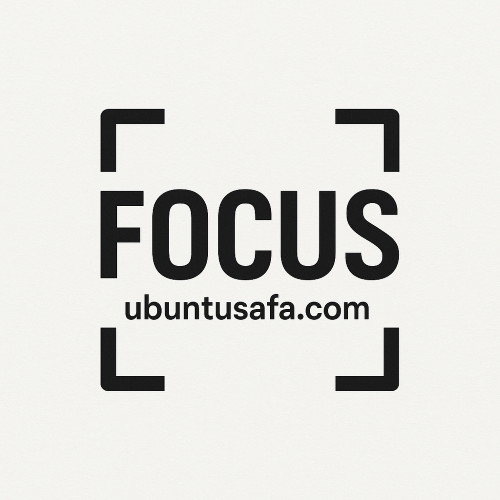The Dragon’s Deals: China’s African Century?

For over a century, Africa was known as Europe’s "dark continent"—a landscape of extraction, control, and colonial violence.
But in the 21st century, a new actor has emerged: China.
From Nairobi’s expressways to Lusaka’s airports, Angola’s oil fields to Congo’s cobalt mines, China’s footprint in Africa is everywhere. To some, it's the dawn of a new partnership; to others, it's just another empire—with Chinese characteristics.
So, is China building Africa’s future—or buying it?
What Are “The Dragon’s Deals”?
China’s engagement with Africa has exploded over the last two decades, driven by three core needs:
-
Resources to fuel industrial growth
-
Markets for Chinese goods and services
-
Diplomatic allies to counter the West
Here’s how the “Dragon’s Deals” play out:
1. Infrastructure for Access
China builds roads, ports, railways, airports, and digital backbones—often through loans. In return, it gains strategic access to African markets and resource flows.
Example:
-
The $4B Mombasa-Nairobi Standard Gauge Railway
-
$6B in Chinese-built dams, roads, and hospitals in Ethiopia
-
Huawei’s massive role in Africa’s digital infrastructure
2. Mining and Mineral Extraction
Chinese companies dominate cobalt mining in the DRC, bauxite in Guinea, oil in Angola, and rare earths across southern Africa. These materials are critical to China’s tech, energy, and military industries.
3. Debt Diplomacy or Development?
China offers low-interest loans and non-interference—unlike Western donors who tie aid to governance reforms. But critics say this leads to:
-
Debt dependency
-
Asset seizures (e.g., rumors about ports or mineral fields)
-
Elite capture and corruption
Why Africa Welcomes the Dragon
Despite criticism, many African governments and citizens see China as a pragmatic partner:
Speed & Scale
China builds infrastructure fast and big—no endless studies or donor conditions.
No Political Strings
Unlike the IMF or World Bank, China doesn’t preach about democracy or human rights.
Multipolar Leverage
China gives Africa more options in a world once dominated by the West.
The Risks of the Dragon’s Embrace
But beneath the shiny highways and hospitals lie serious concerns:
Unsustainable Debt
Many countries (e.g., Zambia, Kenya) now face repayment crises, with Chinese loans making up a large chunk of their external debt.
Resource-for-Repayment Models
Deals often mortgage future resource revenues, limiting sovereignty.
Job Displacement & Local Neglect
Many Chinese projects use Chinese workers and materials, creating few local jobs.
Digital Surveillance
China’s role in building Africa’s smart cities and telecoms (e.g., Huawei, ZTE) raises alarms about digital authoritarianism and data security.
China vs. the West: New Colonialism or New Chance?
The West accuses China of neo-colonialism. China accuses the West of hypocrisy. African leaders often play both sides to maximize benefits.
Here’s the paradox:
-
The West had centuries to develop Africa—and largely failed.
-
China arrived two decades ago, and changed the landscape.
So who’s the villain?
Maybe it’s not about China or the West. Maybe the question is:
-What do African governments demand from either?
-Are the deals transparent, fair, and accountable?
-Are citizens benefiting—or just elites?
-Are we building capacity—or dependency?
The Way Forward: African Agency Above All
China may be a superpower, but Africa must not be a spectator in its own story.
Here’s what’s needed:
-Negotiate as a bloc, not fragmented states
-Prioritize value-added exports, not just raw resources
-Ensure debt transparency and fair terms
-Push for tech and skills transfer, not just hardware
-Build local capacity, not dependency
Conclusion: Whose Century Is It—Really?
The Dragon has come—not with muskets and missionaries, but with bulldozers, banks, and broadband.
China’s African century is possible—but only if Africans define the terms. The real power lies not in Beijing or Washington, but in the hands of those who control the land, the youth, the votes, and the narrative.
The future is not East or West.
It is Afro-centric—or nothing at all.
- Questions and Answers
- Opinion
- Motivational and Inspiring Story
- Technology
- Live and Let live
- Focus
- Geopolitics
- Military-Arms/Equipment
- Beveiliging
- Economy
- Beasts of Nations
- Machine Tools-The “Mother Industry”
- Art
- Causes
- Crafts
- Dance
- Drinks
- Film/Movie
- Fitness
- Food
- Spellen
- Gardening
- Health
- Home
- Literature
- Music
- Networking
- Other
- Party
- Religion
- Shopping
- Sports
- Theater
- Health and Wellness
- News
- Culture

